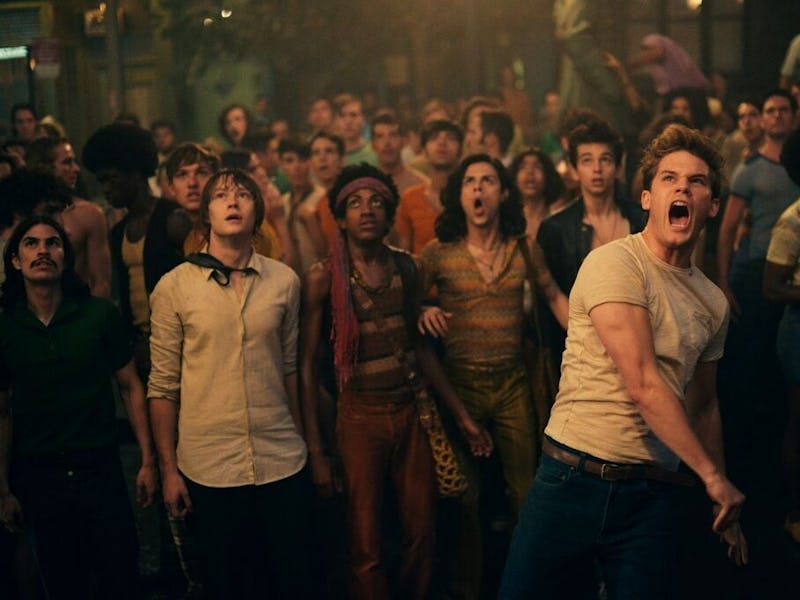'Stonewall' Could Be Roland Emmerich's Biggest Disaster
More damage than Godzilla.

Roland Emmerich is not a subtle filmmaker. His movies err on the bombastic and appeal to the (market-tested) broadest sensibilities. But after years of loud, CGI-laden affairs like Godzilla, The Day After Tomorrow, and 2012, Emmerich is taking his large vision to a smaller scale in a fictional telling of the historic Stonewall riots of 1969.
Set for release in September, the film is already generating controversy, but not the type you would assume.
It’s been a banner year for LGBTQ civil rights in the United States, and many have looked to Stonewall as the beginning of the decades-long fight that still has more rounds to go. It’s a remarkable story, complete with heroes and villains out of a Greek myth, but it was a very real event that spilled very real blood one summer morning in New York’s Greenwich Village.
Despite this notoriety, Stonewall hasn’t been the American legend it deserves to be. Other movies and documentaries have been made, and New York Pride takes place annually in late June to commemorate those fateful nights fifty years ago, but it’s still relatively forgotten. Earlier this year at my alma mater, I attended a speaking engagement with Star Trek alum and activist George Takei, and he talked about Stonewall to a stunned crowd who seriously had never heard of it.
But Stonewall is a Hollywood movie from a prolific Hollywood director. Though no movie “based on true events” has ever been 1:1 accurate, pivotal moments of Stonewall are being retold that aren’t pleasing the LGBTQ community.
In Stonewall, Jeremy Irvine’s Danny, a white gay male, throws a brick that ignites the fight. But what actually happened was that the first direct aggressions — the throwing of bottles, shoes, and bricks — were by trans people, drag queens, and lesbians, many of whom were people of color. The film’s slighting of these people hasn’t been taken kindly by historians and activists, who believe Emmerich’s reinterpretation to be yet another notch in Hollywood’s history of revisionist storytelling.
The backlash has been swift. A boycott of Stonewall has collected 10,000 signatures as of this writing. Quartz is particularly enraged and condemns the change, partially because it intersects with the extremely heated, very current Black Lives Matter movement.
In the digital age, controlling the narrative equals power, which is why the LGBT community—particularly during this time of Black Lives Matter and the rise of the trans movement—has reacted so negatively with Stonewall’s early preview. Those in power are the ones who have their narratives passed on. They decide what is classified as “historical truth.”
It is very curious that Emmerich, a gay man and LGBTQ activist, would OK these rug-sweeping decisions. Still, Stonewall presents a very interesting point in a career from an artist such as Emmerich. Maybe now that he’s built a reputable name doing big movies, he can focus on smaller, more grounded stories that can start important conversat—
Oh, goddamn it.